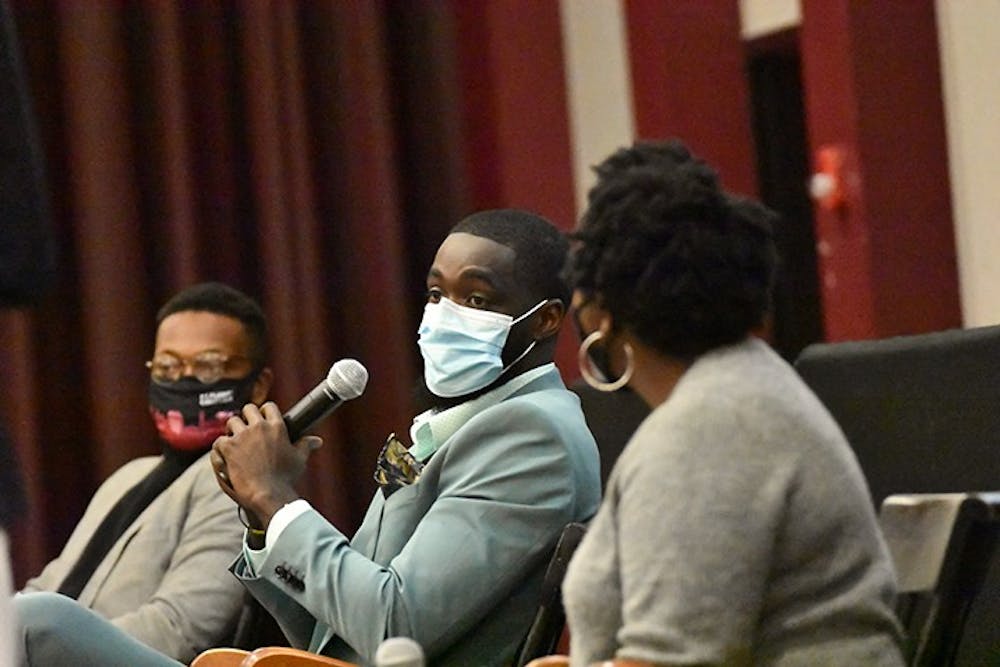A panel of current students and USC alumni spoke about their experiences as Black students at the university during Friday night's the "Beneath the Bricks" program, an event to celebrate Black History Month.
The event was hosted by Student Government and the Freshmen Council and featured performances by the Touch of Faith choir and the Theta Nu chapter of Alpha Phi Alpha Fraternity Inc.
The panelists began the discussion by explaining why they chose to attend USC, a primarily white institution, over a historically Black college or university (HBCU). They said a lack of funding and awareness to HBCUs, along with the fact that USC provided better financial aid, contributed to their decisions.
“I found a very cohesive, tightly-knit community that almost, on Sundays, made me feel like I was actually at an HBCU,” Stephen Benjamin, the mayor of Columbia, said.
The panelists also discussed the initiative at USC to rename buildings currently named after controversial figures, and said the initiative was long overdue and that there were no excuses for the buildings to be still not yet renamed.
“You go back 10, 20, 30, 40 years, students are arguing about the same stuff with the administration, over and over and over and over again,” Lyric Swinton, a first-generation, 2020 graduate of USC, said.
Benjamin echoed Swinton in her frustrations and said he is not afraid of the Heritage Act, which prohibits the removal of names, flags or any other memorials of any Civil War historical figure or event from public property without a two-thirds vote from the state legislature.
“If you're not going to act affirmatively to put the names of people who ought to be recognized, you should, at the very least, remove the names of those who should not be honored,” Benjamin said.
During a discussion of how the university can better recognize enslaved peoples’ contributions to USC, the panelists said that not enough money has been put into recognizing Black figures and there needs to be more enrollment of people of color.
“Money talks. What you spend your money [on], I think, is an expression of your value system," Toneia Douglas, a fourth-year public health student, said.
The Black experience at USC was another point of discussion. The lack of a significant population of people of color at the university and the presence of racism on campus were common frustrations among panelists.
“These challenges we face are global, they're real all across the world, they are particularly pernicious in the DNA of this country that we call home, and we're gonna have to learn how to deal with them and expect to deal with them once we leave here,” Benjamin said.
The panelists gave advice to current students on how to network and take advantage of the alumni association at USC.
“The relationships you build here are amazing. They will follow you over the course of your life,” Benjamin said.
The co-founder of Kiki’s Chicken & Waffles, Kitwanda “Kiki” Cyrus spoke about networking.
“Relationships are important. I met a lot of new people, and I'm still talking to them to this day. Remember that someone's always watching you guys, watching what you do,” Cyrus said.
Mayor Benjamin shared his thoughts on the importance of reaching out.
“The world is literally your oyster, and you're going to find a whole lot of people if you network, if you reach out, who are willing to pour into you,” Benjamin said.
Editor’s note: Lyric Swinton hosted Garnet Media Group’s ‘The Patchwork Feminist’ podcast during her time at USC. Garnet Media Group is The Daily Gamecock’s parent organization.

